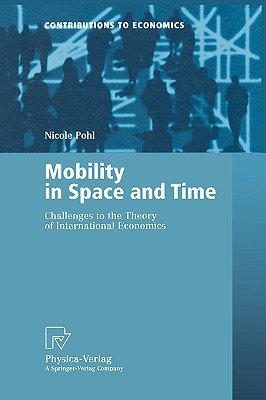
- We will send in 10–14 business days.
- Author: Nicole Pohl
- Publisher: Physica Verlag
- Year: 2001
- Pages: 235
- ISBN-10: 379081380X
- ISBN-13: 9783790813807
- Format: 15.6 x 23.4 x 1.4 cm, minkšti viršeliai
- Language: English
- SAVE -10% with code: EXTRA
Reviews
Description
The pure theory of international economics operates within a methodological framework of (static) equilibrium modelling. This sets a number of restrictions to its capability to explain empirical economic phenomena. A huge part of the scientific discourse takes place within this equilibrium framework. This is also true for new approaches like e.g. the New Economic Geography and models operating with market structures of oligopoly. This is why it is a courageous effort to try to cross the apparently unalterable borders set by equilibrium modelling. Most certainly this cannot be an end in itself. Especially the pure theory of international economics is still in many fields lacking adequate possibilities to deal with phenomena in space and time. These two dimensions have in common that they make the introduction of specific facets of movement, change, evolution - and therefore mobility - possible. Besides this dynamic component a point of view that includes space and time challenges us to find new possibilities to model heterogeneous agents. If these ideas are not so revolutionary in their content, the attempt to introduce them into a formal model is a big challenge. Moreover, it poses the question about the role of a theory of international economics in such a wider framework.
EXTRA 10 % discount with code: EXTRA
The promotion ends in 21d.01:53:31
The discount code is valid when purchasing from 10 €. Discounts do not stack.
- Author: Nicole Pohl
- Publisher: Physica Verlag
- Year: 2001
- Pages: 235
- ISBN-10: 379081380X
- ISBN-13: 9783790813807
- Format: 15.6 x 23.4 x 1.4 cm, minkšti viršeliai
- Language: English English
The pure theory of international economics operates within a methodological framework of (static) equilibrium modelling. This sets a number of restrictions to its capability to explain empirical economic phenomena. A huge part of the scientific discourse takes place within this equilibrium framework. This is also true for new approaches like e.g. the New Economic Geography and models operating with market structures of oligopoly. This is why it is a courageous effort to try to cross the apparently unalterable borders set by equilibrium modelling. Most certainly this cannot be an end in itself. Especially the pure theory of international economics is still in many fields lacking adequate possibilities to deal with phenomena in space and time. These two dimensions have in common that they make the introduction of specific facets of movement, change, evolution - and therefore mobility - possible. Besides this dynamic component a point of view that includes space and time challenges us to find new possibilities to model heterogeneous agents. If these ideas are not so revolutionary in their content, the attempt to introduce them into a formal model is a big challenge. Moreover, it poses the question about the role of a theory of international economics in such a wider framework.


Reviews